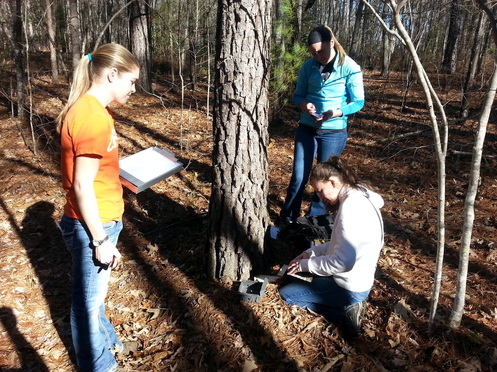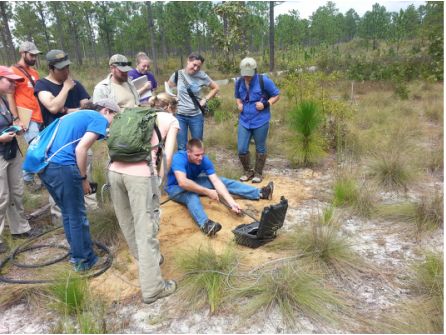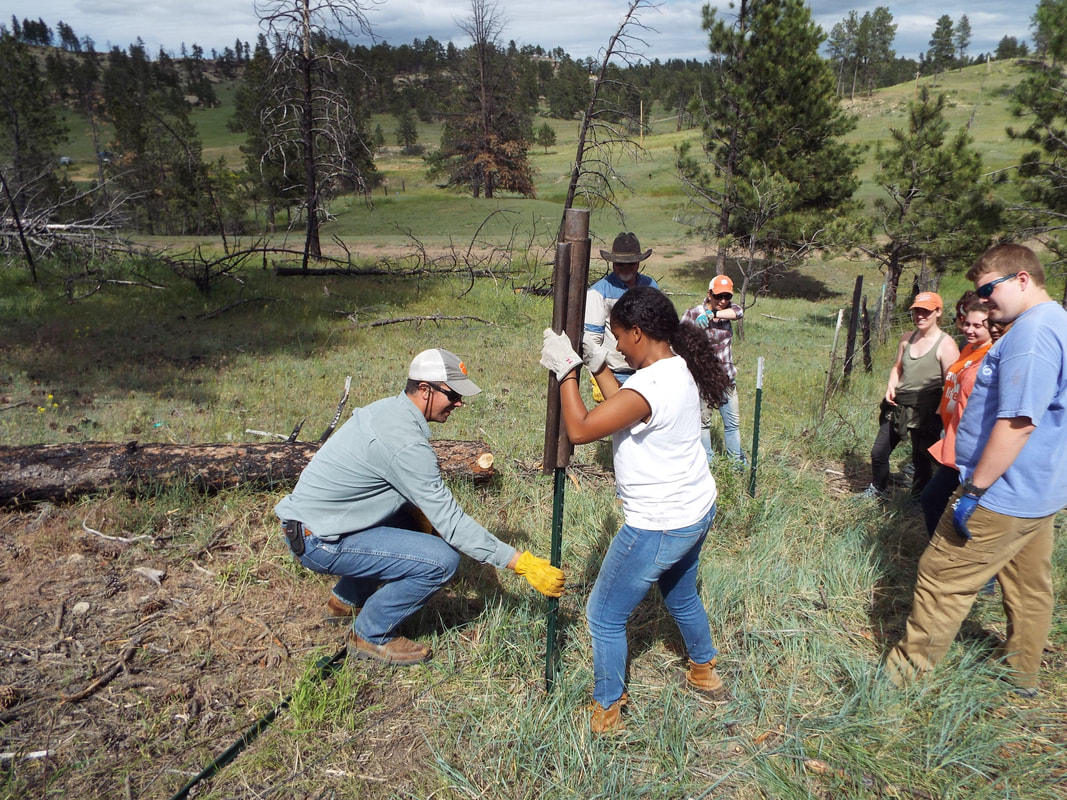Teaching Philosophy
|
I believe it is the responsibility of a teacher to not only to pass on knowledge, but engage students to help them better evaluate the information they receive, develop their own ideas, and be able to express themselves in writing and speaking. I also believe that a good teacher gains altruistically by training the next generation of professionals in their field, and personally through new perspectives on their own research topics and through the beneficial process of continual reexamination of the assumptions that shape their field. To achieve these goals, my teaching style focuses on three main tenets:
Problem SolvingTeaching in the sciences is particularly rewarding because of the logical process scientists use in answering questions about the natural world. This requires a firm foundation in the history of the discipline to orient the students, but also requires that the teacher inspire the students to think beyond the pages of a text book and apply this new understanding to issues that surround them. To achieve this, I use field-based experiences and real world examples to challenge student's to think critically and collaboratively about how to address the constantly evolving problems facing natural resource scientists.
Capacity BuildingWildlife ecology and conservation biology benefit from being based in a love for the outdoors, but I firmly believe that to be successful in these fields requires a deeper understanding of our natural world. In particular, I focus on providing students with tools they might use beyond their years at University. Courses that I teach provide skills ranging from basic understanding of animal physiology and behavior, study design, field monitoring and quantitative data analysis. to the philosophical and ethical contexts of fish and wildlife conservation. In addition, all of my courses have components on technical writing and public speaking skills needed to deliver a final product.
Interdisciplinary EducationIn their future careers, natural resource majors must not only be good biologists, but understand the social and political contexts of conservation issues. To enable students to address these often complex and interconnected issues (emerging infectious disease, invasive species, climate change, etc.), I try to challenge students to think across disciplines. This is most evident in our Montana Summer Program course that focuses on understanding the Great Plains as a working conservation landscape. You can read more about the Montana Summer Program on the program webpage, as well as view the 2018 photo book.
|
Courses taught:
|
Undergraduate:
Undergraduate Creative Inquiry courses (i.e., small student research teams):
|
|
Past courses: |
Professional Development (Graduate) - Clemson
Carnivore Ecology (Graduate) - Clemson Carnivore Coexistence (Graduate) - Clemson Restoration of Fish and Wildlife Populations (Graduate) - Clemson Wildlife Management - Clemson Wildlife Management Techniques - Clemson Conservation of Biological Diversity - Virginia Tech Wildlife Biology - Virginia Tech Wildlife Research and Management Techniques - University of Missouri |
Proudly powered by Weebly


